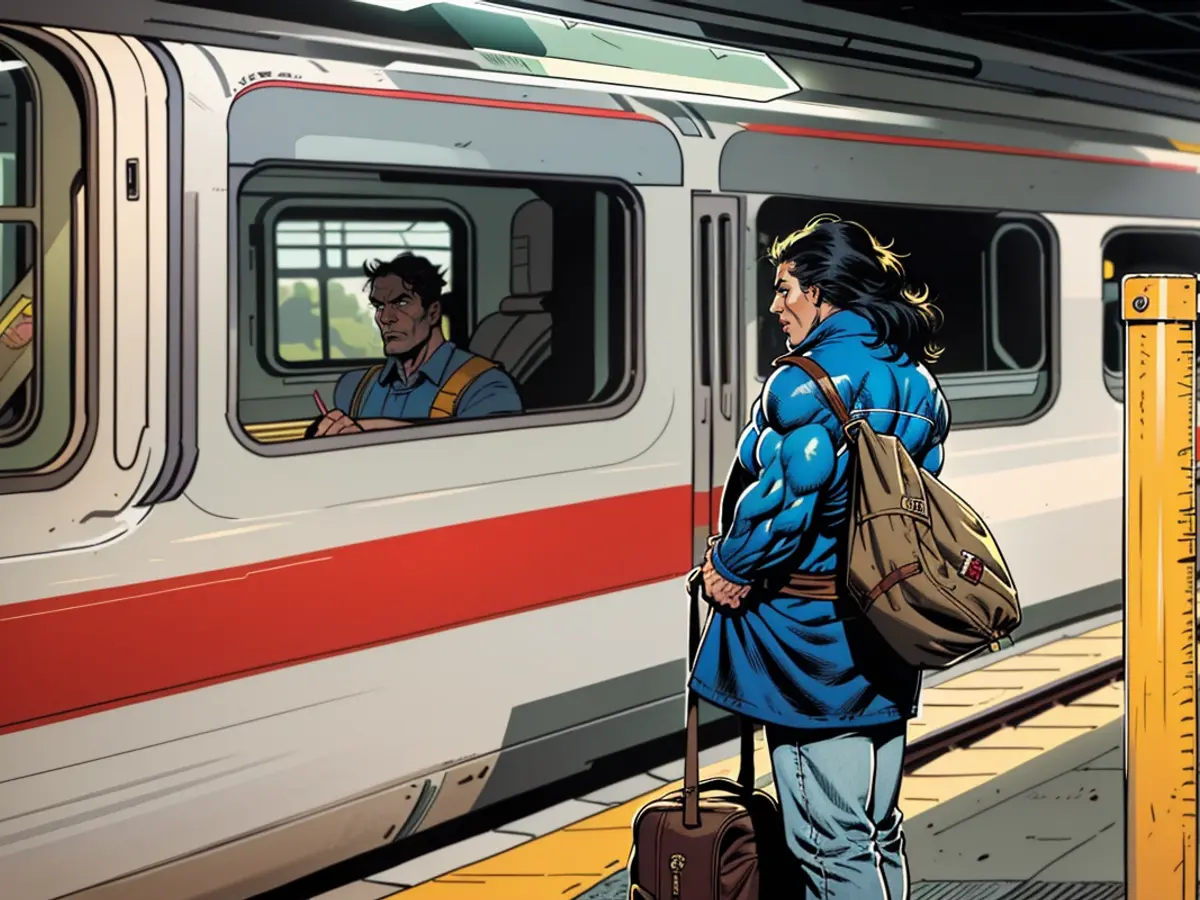The train was as punctual in June as seldom before
Criticism of the railway during the Football-EM was clear: Fans arrived late to games, tournament director was stuck. In the first half of the year, more than every third train was delayed. Ambitious construction projects are now supposed to at least improve the infrastructure.
There were numerous issues on the rails in Germany, which were apparent to millions of passengers even before the Football European Championship. In June alone, during the first half of the tournament, almost every second long-distance train was delayed, as the railway announced. In the previous November, the punctuality rate had been so poor, there had not been such a bad one for many years.
The railway's punctuality target for the current year has already been missed. Originally, more than 70 percent of trains were supposed to arrive on time in 2024. It is clear now that the annual punctuality will be significantly below this target.
According to the railway, only 62.7 percent of long-distance trains arrived at their destination without major delays in the first half of the year. That was almost six percentage points less than in the previous fiscal year. The so-called passenger punctuality looked even worse with 66.8 percent.
Unlike operational punctuality, passenger punctuality is evaluated based on the proportion of passengers who reached their destination without major delays. Factors such as train cancellations are also taken into account. A passenger is considered delayed if there is a delay of 15 minutes or more. "The massive strikes, nationwide construction activities, and especially the extreme weather events in the first half of the year to an unprecedented extent have pushed the numbers down," the railway stated.
As many weather-related delays as ever
The extreme weather conditions caused significant problems for the railway and passengers, especially in June. "With an average of over 400 trains per day, more than twice as many long-distance trains were affected by external influences such as landslides, flooding, and dam failures than usual," it was stated. "This figure was even 33 percent higher than the peak months during the flood disaster in the summer of 2021." There have never been so many weather-related delays on the railway.
Strikes and bad weather explain the railway's unreliability only in part. The company has been struggling with high delay rates for years. The main reason for this is the poor infrastructure, which has been worn out due to underfunding for decades. This was particularly evident during the Football European Championship.
For example, the Dutch team had to travel to the semi-finals by plane instead of by train due to a more than two-hour delay. At the start of the tournament, hundreds of Austrian fans were stranded in Bavaria because a construction site was not completed on time. Tournament chief Philipp Lahm missed the kickoff of a match due to railway problems in the group stage. The railway admitted to problems and apologized to passengers. However, the negative headlines led to heavy criticism from politics as well.
General overhaul should put things right
The rail scandal erupted so forcefully that even the competitors were compelled to join forces with the state-owned enterprise. "First and foremost, the federal government must come clean about this," remarked Peter Westenberger, CEO of the Competitors' Association The Goods Railways, a few days ago. For years, criticism of declining quality and capacity in the rail network has been swept under the rug. "Germany is still saving its railways, and that's why the European Championship traffic could not be the last embarrassment."
However, there has been movement in the matter for some time. With previously unheard-of billions of euros, the federal government plans to modernize the rail network. Since this week, the comprehensive renovation of the Riedbahn between Frankfurt and Mannheim has been running. Until mid-December, the heavily trafficked corridor will be completely closed. After that, the section will be construction-free for several years.
According to this concept, 40 heavily frequented sections will be made fit again and punctuality will be improved piece by piece by 2031. "With the modernization of the railways, it will also become more resilient against extreme weather events," the railway announced. Not only football fans are hoping that the plan will succeed.
The German Railways encountered significant challenges during the Football EURO 2024, with numerous delays affecting long-distance trains. This issue was not new, as the railway's punctuality rate had been poor in the previous November, marking a poor performance in many years.
Despite these challenges, German Railways remains optimistic about improvements, citing ambitious construction projects as a means to enhance infrastructure and reduce delays. These projects, scheduled to be completed by 2031, aim to modernize 40 heavily frequented sections, making the rail network more resilient against extreme weather events and hopefully improving punctuality for both football fans and regular passengers.








